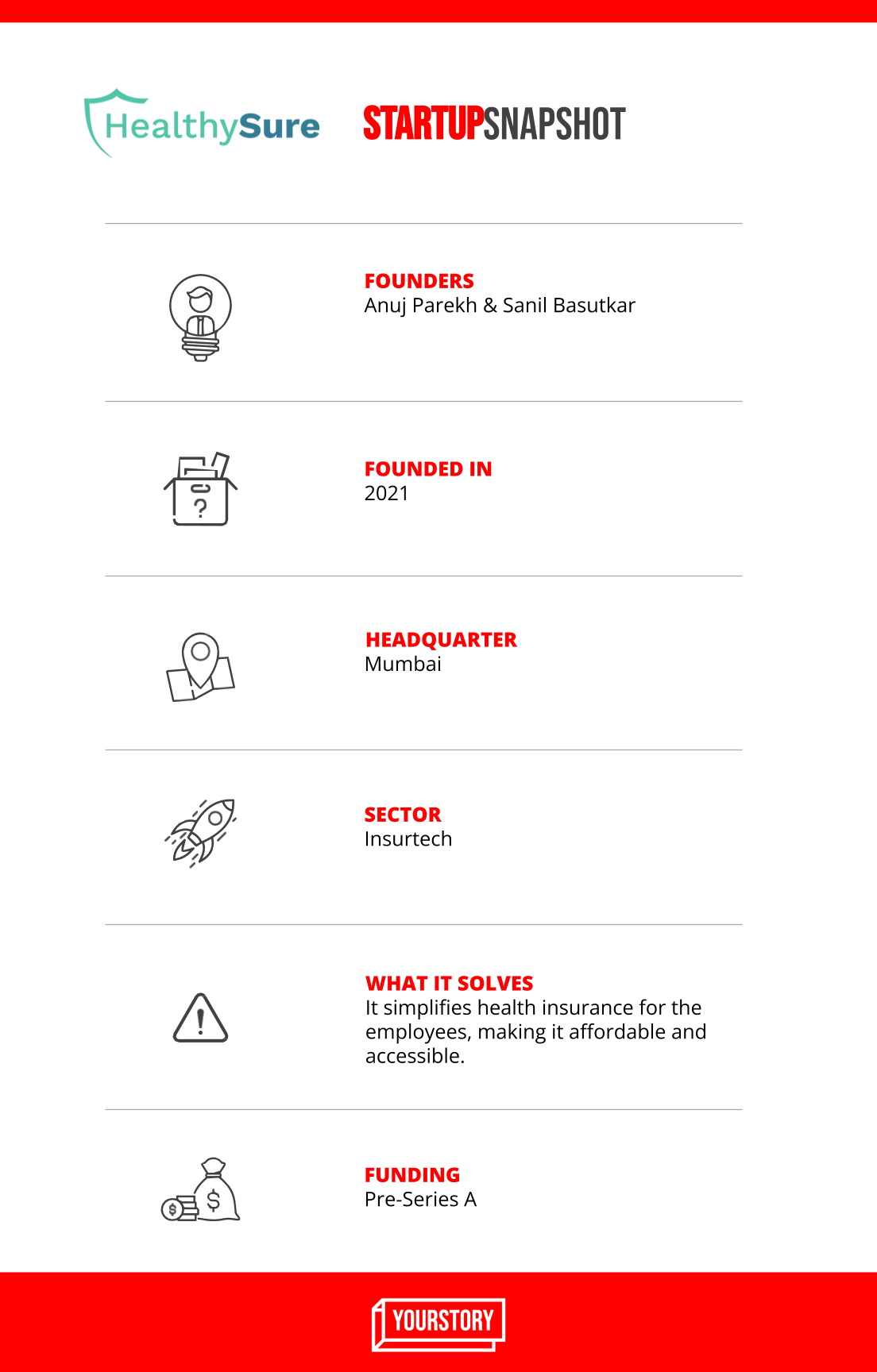The COVID-19 pandemic revealed that many Indian families were just a major health crisis away from financial ruin. According to a report released by the Reserve Bank of India (RBI) last year, household debt ballooned to 37.9 percent of the GDP in the October-December 2021 quarter, while bank deposits halved to Rs 1.7 lakh crore from Q2 FY2021.
This was largely due to hospitalisation costs, which had gone through the roof for family members. Despite many working in organisations that covered their health insurance, they found themselves struggling to pay off bills as their cover was either inadequate or had certain restrictions.
With organisations unable to provide a comprehensive health cover due to budget constraints, employees tend to opt for a separate personal cover – in essence paying double the premium, leaving them with potentially crippling debt in times of emergencies.
Enter HealthySure, which is enabling employees to have comprehensive life insurance cover by helping them upgrade their corporate health cover.

Providing comprehensive coverage
Started in May 2021 by chartered accountants, and IIM Bangalore and ISB alumni – Anuj Parekh and Sanil Basutkar, Mumbai-based HealthySure offers a unified health insurance product that lets employees to take a cover of as high as Rs 1 crore, with employers subsiding a sizeable portion (offer savings as high as 90 percent for the employee).
“Using a nominal amount, employees can benefit from saving as high as 90 percent over an independent policy. We enable employees to continue such covers in personal capacity post-employment,” Sanil, Co-founder and Product Head of HealthySure, tells YourStory.
Using tech (a mix of proprietary and integrations with partners) for both employers and the workforce, the platform also offers 360-degree healthcare services, including doctor consultations, health checkups, mental wellness, fitness memberships, discounted pharmacy purchases, and lab tests among a few.
“We operate in the B2B space, but we are also able to target employees and have a B2B2C segment. Our insurance plans start from Rs 50 per employee per month for basic covers and can go as high as Rs 3,000 per employee per month for a comprehensive coverage,” he adds.
The startup claims to be working with close to 80 organisations and at present, covers around 25,000 employees pan-India. Some of its clients are such as Pocket Aces, CredR, Clovia, Vista Rooms, and Boheco among others.
Getting started
Anuj and Sanil were very good friends since their undergrad days while studying at Narsee Monjee College, Mumbai.
A national rank holder in chartered accountancy and an IIM Bangalore alumni, Anuj – Co-founder and CEO at HealthySure – has over seven years of experience in management consulting, investment banking, and corporate finance. He was the key project consultant at Virgin Hyperloop, driving commercialisation of the world's first hyperloop corridor in India before taking the plunge into entrepreneurship.
Sanil is a chartered accountant and has graduated from Indian School of Business. He has over seven years of experience in product management, financial services and management consulting. He is also a founder of Saransh app, a news-in-short equivalent for the vernacular masses. Sanil was also the lead product manager at Torre Capital, a fintech investments platform, before co-founding HealthySure.
“We always wanted to solve problems, create an impact, and had an entrepreneurial mindset. We could personally relate to the problem we are solving, which just gave us the push to launch HealthySure,” says Sanil.
Currently, the startup has a team of 25+ members and plans to expand it to 50 in the next six months.
The insurtech startup started operations during the pandemic, and 80 percent of its clients are first time buyers of group health insurance.
Funding and monetisation
Started with an investment of Rs 10 lakh, the startup raised a Pre-Series A round of Rs 9 crore in February 2022, led by Inflection Point Ventures. The round also saw participation from We Founder Circle, Dexter Angels, Campus Fund, HEM Angels, and other private investors. It plans to use the funds by offering innovative and affordable group health insurance led solutions to the Indian workforce and their families.
“We had started our operations nine months ago and are currently doing an annualised gross premium of around Rs 15 crore. This is additionally supplemented by revenue from healthcare related services. We expect this to grow significantly now that we are scaling up our team, technology and operations. While we are yet to achieve profitability, we are confident it may come within the next two to three years,” Sanil says.
It considers SMEs that are predominantly looking to buy employee benefits for the first time as its target group.
The startup competes with the likes of PazCare, Plum, and Nova Benefits, among others.

The way ahead
According to Insurance Regulatory and Development Authority, IBEF and Mordor Intelligence reports, the group health insurance market in India is projected to grow to $11 billion by 2025 – almost 1.5x the size of the retail health market.
“These numbers were projected pre-pandemic. We have clearly seen that this number will be way higher due to the increasing awareness and necessity of health insurance post-COVID-19. We have received a high level of acceptance in the market due to our unique offerings and our razor focus on offering health insurance and related services. This lets us go deeper into problems and build an amazing healthcare platform for employees and their families,” he explains.
The insurtech platform hopes to serve around 1,50,000 lives within the next 12 months, and over a million over the next two to three years.
“We are expanding our partnerships and work with 20+ partners currently to provide end to end healthcare services, including insurance to our clients and employees,” Sanil says.
He is also hopeful that the government may mandate employee health covers as social security.
“If this happens, it will give rise to exponential demand,” he quips.
“There has been good investment in the B2B insurtech sector over the last 12 months, which indicates that this sector has a huge untapped potential. Despite the investments, employee welfare insurtechs still have less than 1 percent market share. We expect this to change very soon,” Sanil signs off.
Edited by Kanishk Singh

